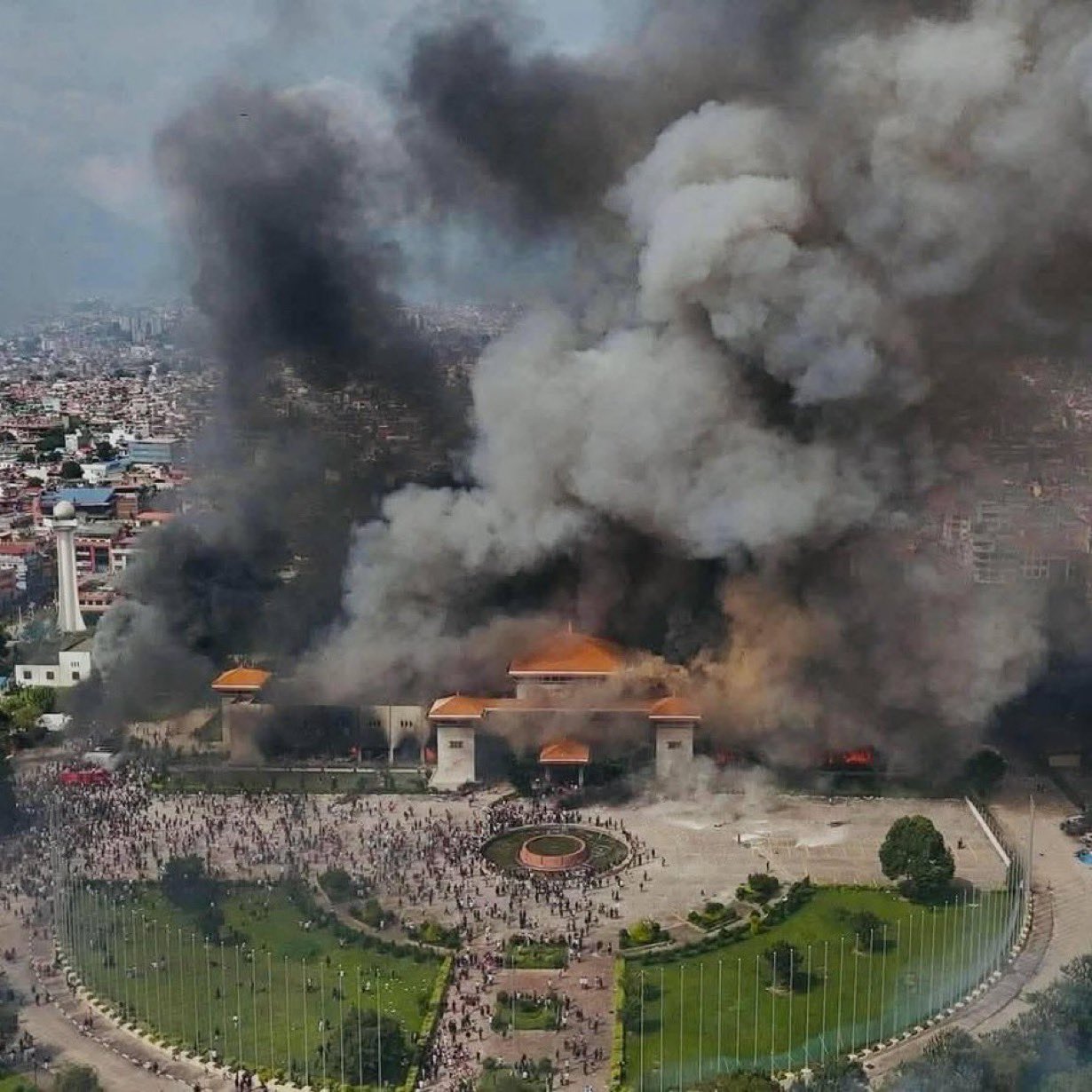Protests in Kathmandu reflect the dashed hopes of an entire generation
Sparked by the government blocking social media, protests forced the prime minister to resign. Youth mobilisation reflects the profound disillusionment with a political system that has betrayed the hopes born from the birth of democracy. Economic difficulties are pushing many to emigrate. Protests calling for the return of the monarchy as an alternative to political corruption had already taken place in April.
Kathmandu (AsiaNews) – After two days of fierce protests, the Nepali army has tightened its security around the country’s parliament.
Riots broke out on Monday morning following the blocking of several social media websites that had criticised cabinet ministers and their families over their lifestyles.
The ban on digital platforms, however, was only the trigger: corruption and government actions are at the root of the Gen Z mobilisation.
Lifting the ban and the resignation of Home Affairs Minister Ramesh Lekhah were not enough to appease protesters.
Several government buildings were set on fire yesterday, including parliament, as were the homes of some politicians and senior government officials.
The protests escalated to the point of forcing Prime Minister Khadga Prasad Oli to resign, but this had little effect.
Tens of thousands of people continued to occupy the streets until the evening, blocking roads and targeting ministers and political leaders.
Videos online show the attack on Congress Party leader Sher Bahadur Deuba and his wife, Arzu Rana Deuba, the current foreign minister, an episode that reflects the deep anger felt by young Nepalis, hit by high levels of joblessness and forced to emigrate for a future.
According to various analysts, anger in Nepali society stems from the loss of hopes that had accompanied the arrival of democratic government in 2006, following the overthrow of the monarchy after the civil war, and the adoption of a new constitution in 2015.
Both events should have marked the beginning of a new era for the country, with greater economic stability.
Instead, according to some observers, the politicians who have alternated in power failed to meet the demands of the younger generations, leading to profound disillusionment and widespread dissatisfaction with the entire political system, which has seen three main political parties alternate at the helm.
The same process has been observed in recent years in Bangladesh, with the fall of Prime Minister Sheikh Hasina last year, but especially in Sri Lanka, where the Rajapaksa clan was ousted in 2022.
Many young people feel hopeless in Nepal, forced to emigrate to find opportunities, this in a country where some 20 per cent of the population lives below the poverty line, while remittances are worth approximately US$ 10 billion annually.
The protests have been described as a movement driven primarily by "Generation Z," those born between 1995 and 2010.
A prominent figure who has emerged as a catalyst for the movement is the young mayor of Kathmandu, Balen Shah, born in 1990. A rapper, he was elected as an independent candidate in 2022.
These recent protests are not an isolated incident. In April, several civil groups gathered in front of the parliament building to demand concrete reforms, decisive action to combat the economic crisis, and measures to combat widespread corruption.
In this climate of strong dissent, political groups such as the Rastriya Prajatantra Party (RPP), close to Hindu groups, gained renewed momentum, proposing a restoration of the monarchy as a solution to corruption and government dysfunction.
22/10/2021 11:29
07/06/2021 12:34







.png)










